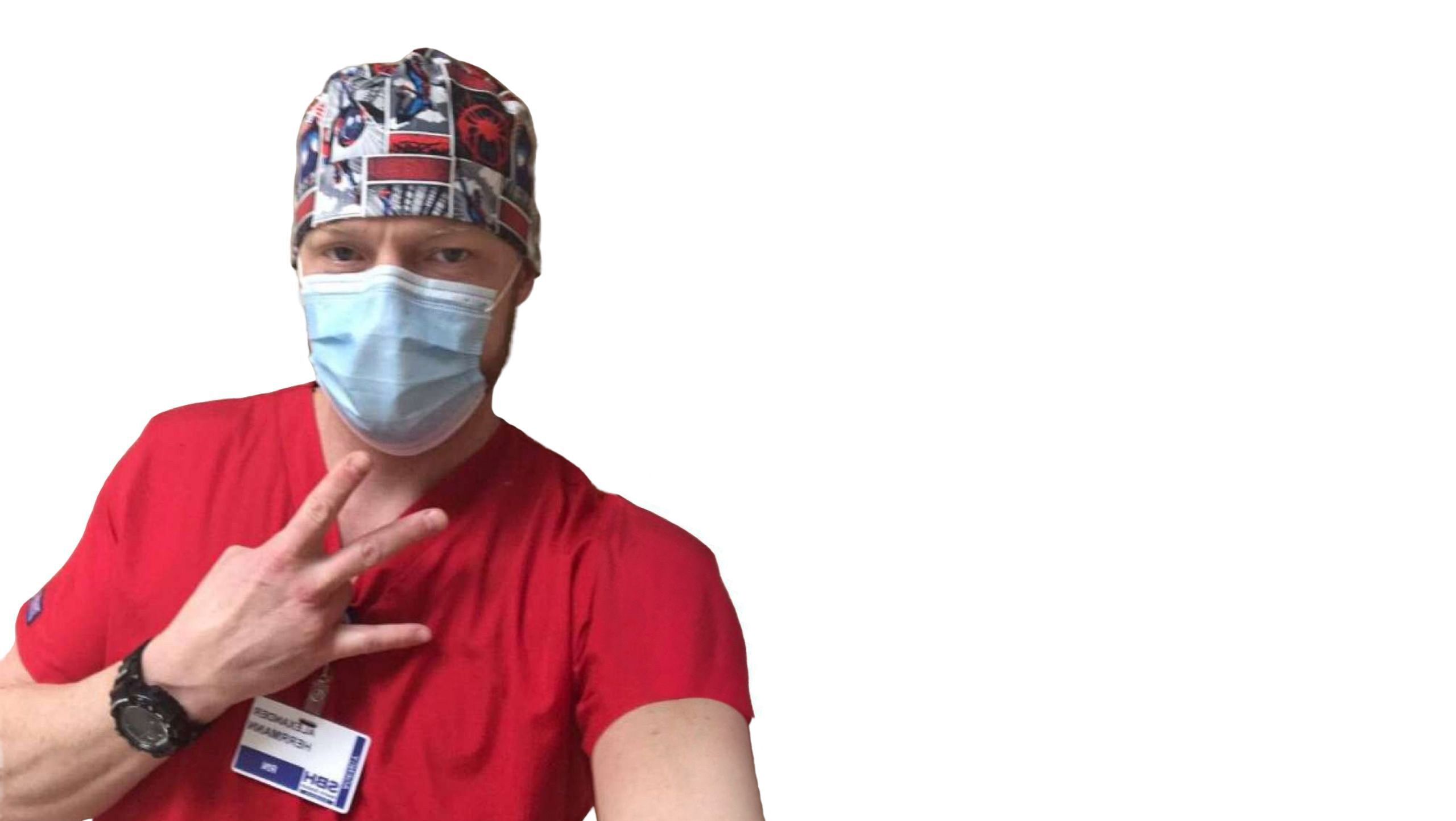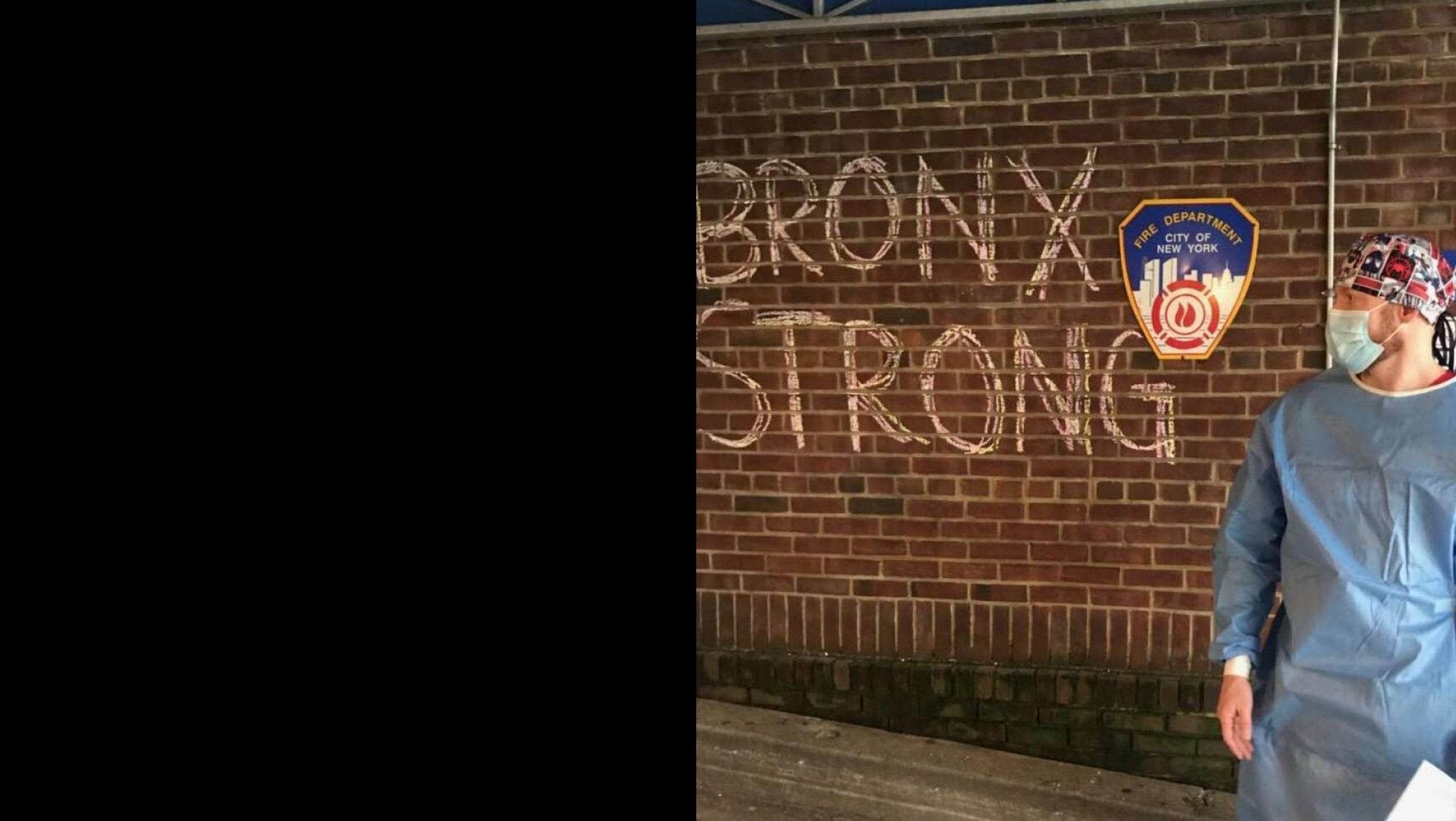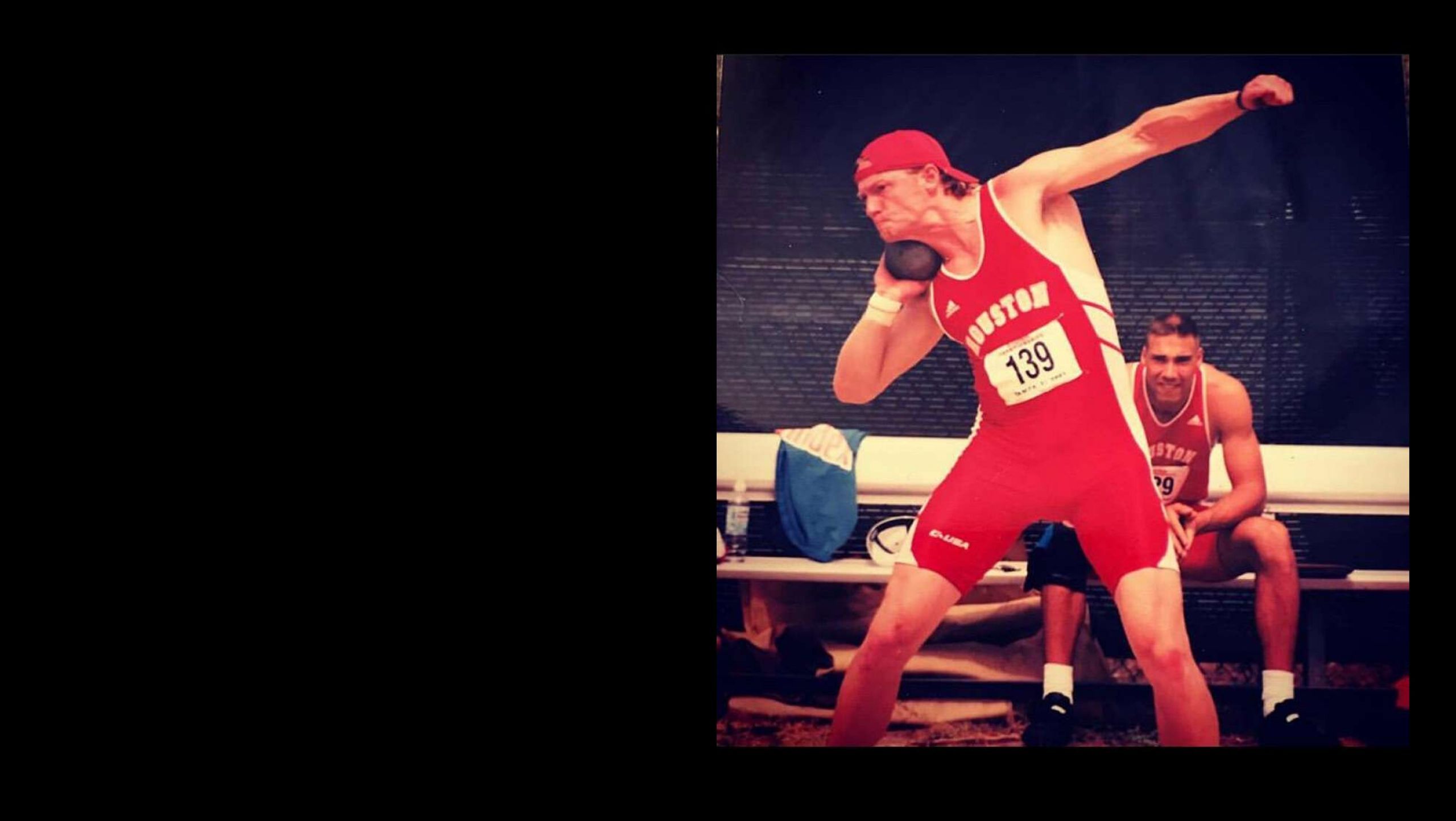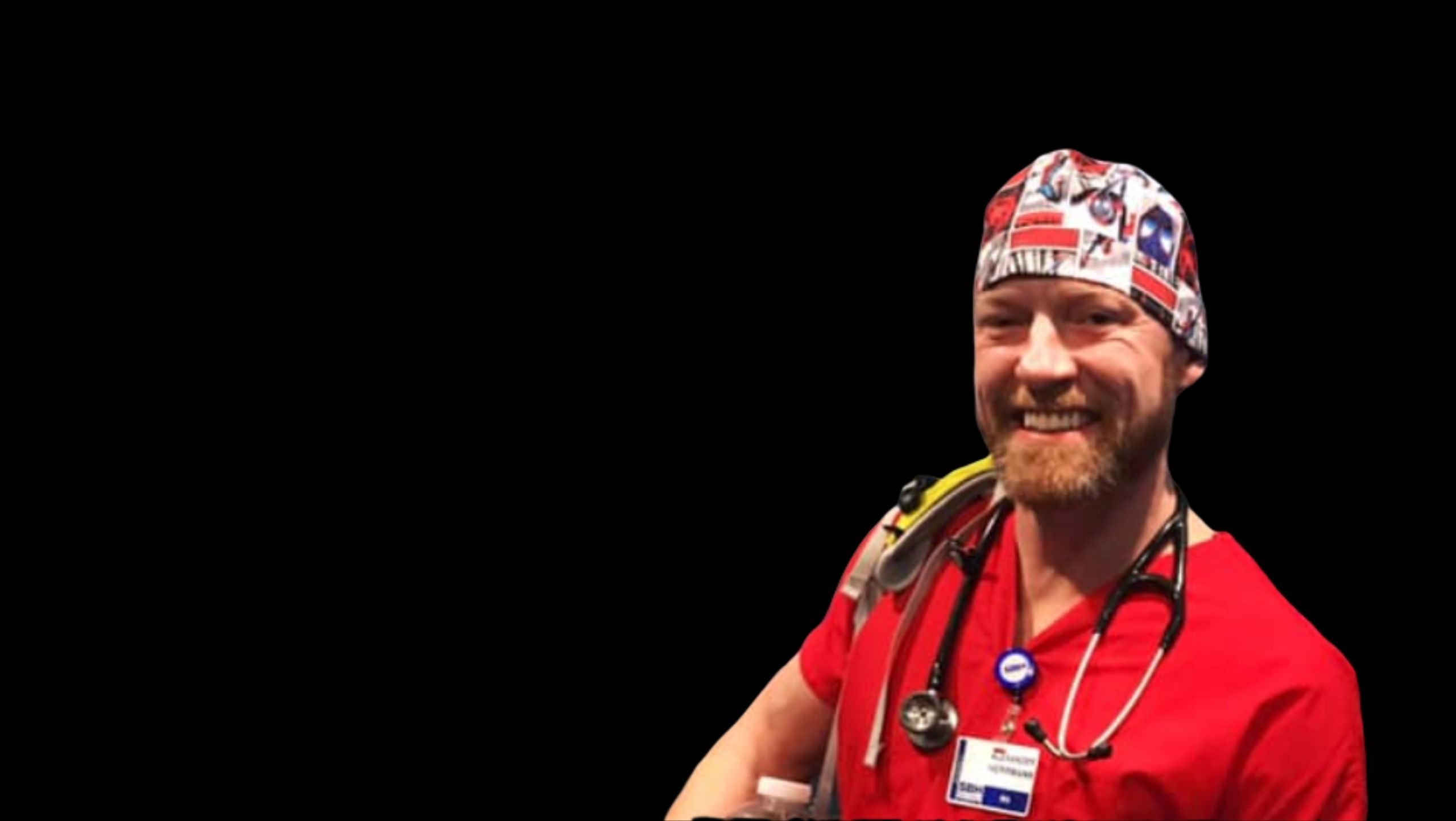BATTLING AN
INVISIBLE OPPONENT
Former UH decathlete heads to
New York to help treat coronavirus

The following story was authored by Joseph Duarte and appeared in the Houston Chronicle on Sunday, May 3, 2020.
Alex Herrmann stood outside the emergency room at St. Barnabas Hospital in Bronx, N.Y., wearing scrubs and his face covered with a mask, with the words "Bronx Strong" written in chalk on a brick wall.
"It's touching," Herrmann, a former University of Houston decathlete, said by phone this week. Herrmann, a nurse from Denver, arrived at the front lines of the coronavirus pandemic in New York this week to offer help to medical workers overwhelmed for months by the public health crisis.
"I wish I was a little sooner, could have done more when it was bad" said Herrmann, a Kingwood High School graduate who attended UH from 1996 to 2001.
Herrmann arrived earlier this week, had his first shift Wednesday and plans to spend the next eight weeks working in the emergency room as the hospital braces for a potential second wave. His 12-hour shifts run from 7 a.m. to 7:30 p.m.
Shortly upon arrival, Herrmann heard stories from co-workers about the peak of the virus, which includes 162,000 positive COVID-19 cases and at least 11,500 confirmed deaths in New York City, according to official city figures.
"I'm on the tail end of this, but they saw the worst," Herrmann, 42, said. "I'm honored to just work beside them and help them."
Herrmann is encouraged by the decrease in the number of cases that are coming into St. Barnabas.
"We're seeing little trickles of (coronavirus) patients," he said. "But the worst is over." He is cautious: "But they are anticipating a second wave."
The 2001 Conference USA outdoor decathlon champion, Hermann's career path has taken him across the U.S. After receiving his bachelor's degree at UH, Herrmann attended Fuller Theological Seminary in Pasadena, Calif., and was a youth minister for 10 years.
He wanted a career change and moved to Colorado, where he was an emergency medical technician and volunteer firefighter in Evergreen, about a half hour west of Denver. Eventually, Herrmann fast-tracked through the nursing program at Regis University and has worked the past five years as a floater in several large ERs in Denver and surrounding areas.
"I can't sit here and not do anything. I just want to help my nurses. They're struggling."
As the outbreak rapidly spread, Herrmann said he could not sit back after hearing reports of overwhelmed New York hospitals. He didn't think twice about going to the nation's epicenter for the virus.
"I love being a nurse," he said. "When COVID-19 came, the health care system was encouraging people to stop going to the hospital. Our numbers in the ER drastically dropped. They cut a lot of shifts. I was hearing about everything going on in New York and all I want to do is help. And I'm not working. This was crazy in my mind. I wanted to do something."
Herrmann began to research options and contacted a recruiter with a travel company that assists in placement of medical workers.
"How fast can you get me to New York?" Herrmann asked.
"I can't sit here and not do anything," he added. "I just want to help my nurses. They're struggling."
Ten days later, Herrmann was assigned to the Bronx hospital, where he went through a crash-course orientation and immediately began in the ER. His job is mostly to work with non-COVID cases, although it's visible around him.
"It's real," he said. "You hear about these staff members that got sick. It's real out here."
Thousands of nurses have come from out-of-state to offer reinforcements at hospitals in New York, the hardest-hit state. The arrival of help has been a lifeline as hospitals scramble to replace workers who are sick or need a break.
"It's overwhelming," Herrmann said of the appreciation shown by New York medical staffs. "It chokes me up."
Herrmann said he did not think twice about going to New York. He was able to FaceTime with his three children, sons age 12 and 10, and a 7-year-old daughter who live with his ex-wife on the West Coast.
"They just can't wait to see me when this is over," Herrmann said.
Herrmann and other medical workers are staying at a Midtown Manhattan hotel, just a few blocks from the city's usually bustling Broadway district. Streets are empty. Photos of nurses are on the giant video screens in Times Square.
"Not would I would think (of my first trip to New York)," he said. "Everything is closed."
When Herrmann arrived, there was at least one reminder of home. The scrubs he was issued are red.
"When I heard I would wear red scrubs out here I couldn't believe it," he said. "I was, 'Oh my gosh, I'm in my uniform back at the University of Houston.'"



Story Credits:
- Story by Joseph Duarte and republished with permission from the Houston Chronicle. Orginal story is available here.
- Photos courtesy of Alex Herrmann
